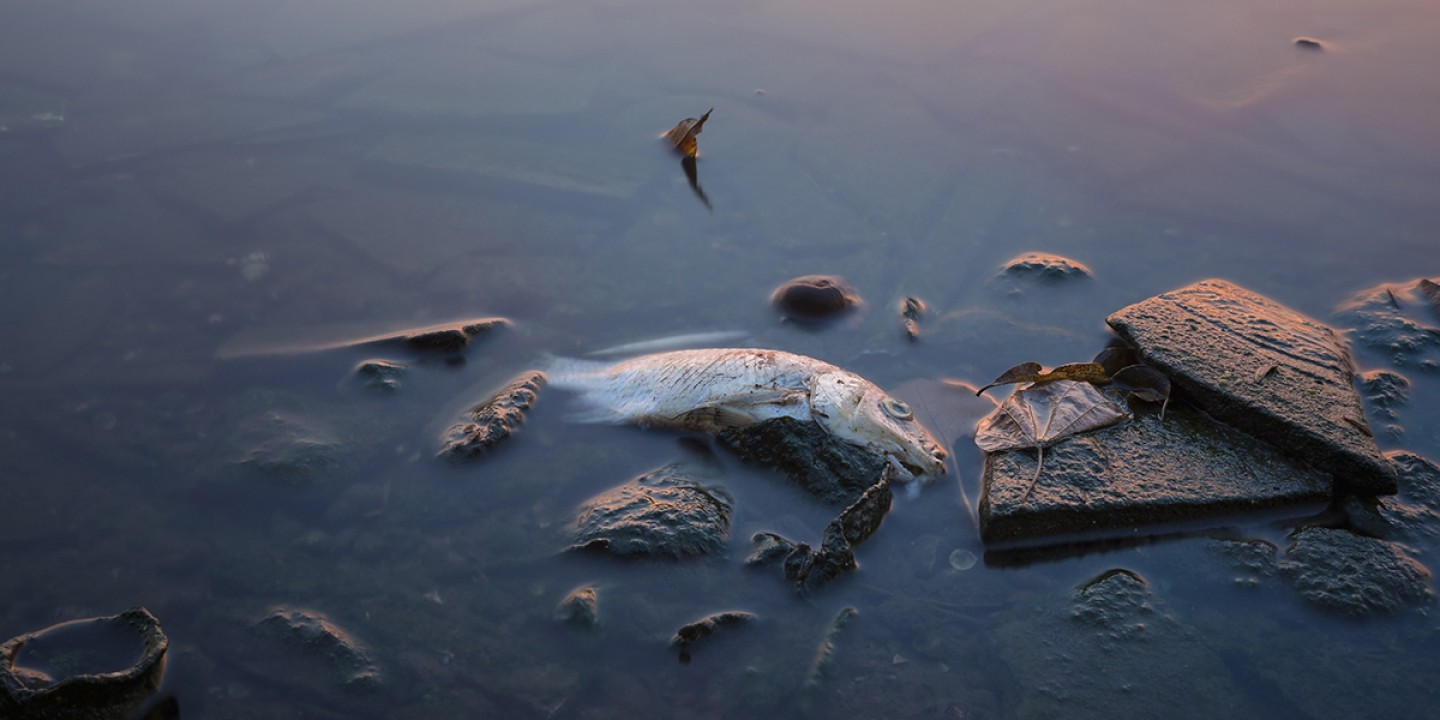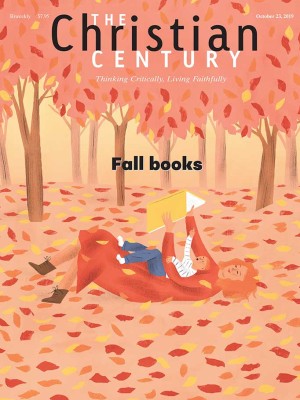Reading the creation story in a dying world
The poetry of Genesis 1 invites us into a sort of palliative care for the earth.

In late summer, as Hurricane Dorian was visiting catastrophe upon the Bahamas, I was reading Genesis 1 and 2 with undergraduates. We noted the usual things that can surprise or unsettle students: that there are two creation accounts from distinct traditions, that these ancient writers were not doing science for us, that they didn’t know they were writing something called the Bible. In wide-ranging conversations, we explored the idea that the two versions together create a social imaginary indicative of the writers’ time and instructive for ours.
But to what end? It’s one thing to examine these texts for their cultural import. It’s good to know, for instance, that the English word dominion (1:26, 28) does not convey the subtleties of the Hebrew, with its connotations of shepherding, kinship, and communal power. That translation and our go-to associations with it—words like domination and subjugation—have underwritten the ruinous relationship with the earth that much of Christianity has permitted of its followers.
Read our latest issue or browse back issues.
It’s common enough and admirable, too, to find in such explorations, especially among the young, a wake-up call to the ecological calamities of the moment. We need to do something, for God’s sake. We need to call out religion’s complicity in the orchestrated undoing of the world. We need to mobilize. It’s another thing, though, and not always an entirely separate thing, to read these texts as companions to grief, as guides of a sort for living in a dying world.
Psychologists who work with climate scientists have observed what some call pre-traumatic stress: anger, panic, and obsessive-intrusive thoughts that result from the daily work of mapping—in precise, quantitative ways—an increasingly dystopian future for the planet. Compounding the stress is the reality that many people—family, friends, strangers, powerful politicians—not only deny the science (the thing marine biologists or arctic geologists have given their life to) but actively seek to undermine it.
Then there is the climate trauma experienced by people and communities who know firsthand that the apocalypse is now. They are almost always in vulnerable places—geographically, economically, politically. I encourage my students to consider what our hand-wringing despair about climate collapse might reveal about our privilege. We’re freaked out. But we are not looking for the bodies of loved ones under the rubble of collapsed houses, often substandard to begin with, on precarious coastlines ill-suited for human habitation.
And so the grief is profound and complicated and widely, if differently, felt. For many it includes guilt, since the actions of powerful industries and governments cause disproportionate harm where the poor suffer most. But we also know that these actions have orchestrated the undoing of all of us—as a civilization and likely as a species.
As with a terminal diagnosis from a physician, we might respond in the classic ways: denial, anger, bargaining, depression, and acceptance. These so-called stages of grief aren’t experienced in uniform, predictable ways, and they may not be the only responses. But for those at the stage of acceptance, what does preparing for a good death—even if it’s several generations out—require? Or, to put a new spin on an old theological question: How should we live in the end times?
As a liturgical poem, Genesis 1 gives form, as biblical scholar Ellen Davis notes, to a particular way of perceiving the world. “And God saw that it was good” is the well-known refrain near the end of each stanza. In the Septuagint, the Hebrew word tov (“good”) is translated to Greek as kalos, which can be rendered into English as “beautiful.”
When we read this text meditatively (as all good poems should be read), we are drawn into a poem of delight and profound cherishing. We perceive that to be beautiful is part of what it means to be. Beauty is not an add-on; it is constitutive of a thing’s existence. When we read it as a companion to our grief and our desire to face the coming cataclysm with responsibility and grace, we are asked to see the destruction of the natural world as a willful negation of beingness, the thwarting of that which makes an arctic ice shelf or a yellow-breasted bunting what it is. We are confronted with humanity’s apostasy from its own beauty—the abandonment of our vocation to be caretakers in kinship with all that exists.
This is painful. But it is also an invitation to recover what’s beautiful—in ourselves, in other beings—by practicing something akin to palliative care. As the suffering and dying accelerate, what gifts can we offer that might reveal beauty in beingness in the places we live? There is, no doubt, the gift of activism and advocacy for vulnerable humans and nonhuman creatures, for rivers, mountains, seas, cities, and whole ecosystems. There is the gift of “announcing our place in the family of things,” as Mary Oliver writes: refusing to think and act as if “the environment” is something that somehow excludes us. And there is the gift of cultivating the virtues necessary to properly meet the impending catastrophe, which, it turns out, are the same virtues necessary for living life well: courage, humility, justice, and compassion.
If the poetry of Genesis reminds us that all forms of life share in the life of God, then the care we offer in a dying world resists the myth of separation that has authorized so much disregard and destruction. And it opens our eyes to the truth that terror and beauty will be companions in our grief for all the time that we have left.
A version of this article appears in the print edition under the title “Reading Genesis in a dying world.”






